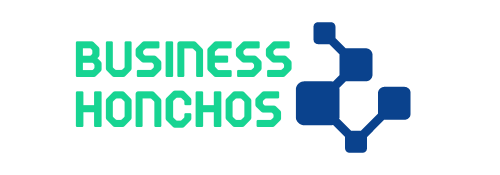The digital marketing is evolving rapidly, and with the ongoing shift towards remote work, marketing professionals are embracing new ways to manage their campaigns from anywhere in the world. In 2024, remote digital marketing has become not just a possibility but a preferred method of operation for many. This article explores how to effectively execute digital marketing remotely, focusing on the latest strategies, tools, and best practices to ensure success.
Understanding Remote Digital Marketing
What is Remote Digital Marketing?
Remote digital marketing involves managing and executing marketing strategies from a location other than a traditional office setting. It leverages digital tools and platforms to create, implement, and monitor marketing campaigns, allowing professionals to work from home, co-working spaces, or while traveling.
The Rise of Remote Work in Digital Marketing
The rise of remote work has been accelerated by advancements in technology and shifts in workplace culture. As businesses continue to adapt to this new normal, remote digital marketing offers flexibility, cost savings, and access to a global talent pool.
Key Strategies for Remote Digital Marketing
1. Embrace Digital Collaboration Tools
Collaboration tools are essential for remote teams. Platforms like Slack, Microsoft Teams, and Zoom facilitate communication and coordination, helping teams stay connected and manage projects efficiently.
2. Utilize Project Management Software
Project management software like Asana, Trello, and Monday.com helps track tasks, deadlines, and project progress. These tools ensure that everyone on the team is aligned and that projects are completed on time.
3. Leverage Cloud-Based Marketing Platforms
Cloud-based platforms such as Google Analytics, HubSpot, and SEMrush allow marketers to access data and tools from anywhere. These platforms provide insights into campaign performance and help in strategizing and optimization.
4. Focus on Content Creation and Distribution
Creating high-quality content remains at the heart of digital marketing. Use tools like Canva for design, Grammarly for writing, and Hootsuite or Buffer for scheduling and distributing content across various social media channels.
Effective Remote Communication and Collaboration
Establish Clear Communication Channels
Effective communication is crucial for remote teams. Set up regular meetings, use instant messaging for quick updates, and ensure that all team members have access to necessary information.
Use Video Conferencing for Face-to-Face Interaction
Video conferencing tools like Zoom or Google Meet are vital for maintaining a personal connection. Regular video meetings help build relationships, discuss complex issues, and brainstorm ideas.
Create a Collaborative Work Environment
Encourage a collaborative work environment by using shared documents and collaborative platforms. Google Workspace and Microsoft 365 offer real-time editing and feedback, which can enhance teamwork and productivity.
Optimizing Digital Marketing Campaigns Remotely
Monitor and Analyze Performance Metrics
Regularly review performance metrics using tools like Google Analytics and Facebook Insights. Monitoring these metrics helps you understand what’s working and what needs adjustment, ensuring that your campaigns are effective.
A/B Testing for Better Results
A/B testing is essential for optimizing digital marketing campaigns. Test different variations of your content, ads, and landing pages to see which performs better and make data-driven decisions to enhance your strategies.
Stay Updated with Industry Trends
Keeping up with industry trends is crucial for staying competitive. Subscribe to industry blogs, attend webinars, and participate in online forums to stay informed about the latest digital marketing techniques and tools.
Managing a Remote Digital Marketing Team
Set Clear Goals and Expectations
Clearly define goals and expectations for your remote team. Establish performance metrics, deadlines, and deliverables to ensure that everyone is on the same page and working towards common objectives.
Provide Regular Feedback and Support
Regular feedback helps remote team members improve and stay motivated. Schedule one-on-one meetings to discuss progress, address concerns, and provide support and guidance.
Encourage Professional Development
Support the professional growth of your remote team by providing access to training resources, courses, and workshops. Continuous learning helps team members stay up-to-date with the latest digital marketing trends and skills.
Overcoming Challenges in Remote Digital Marketing
Addressing Time Zone Differences
Time zone differences can be a challenge for remote teams working across various locations. Use scheduling tools like World Time Buddy to find overlapping work hours and plan meetings accordingly.
Maintaining Team Cohesion
Remote work can sometimes lead to feelings of isolation. Foster team cohesion through virtual team-building activities, regular check-ins, and creating opportunities for informal interactions.
Ensuring Data Security
Data security is a critical concern when working remotely. Implement security protocols such as VPNs, strong passwords, and encryption to protect sensitive information and ensure secure communications.
Conclusion
Remote digital marketing in 2024 offers unprecedented flexibility and opportunities. By leveraging digital tools, focusing on effective communication, and optimizing your strategies, you can successfully manage and execute digital marketing campaigns from anywhere. Embrace the remote work revolution, and you’ll find that the benefits of working remotely far outweigh the challenges.
FAQs
1. How can I stay organized while working remotely in digital marketing?
Using project management tools like Asana or Trello, setting clear goals, and maintaining a structured daily routine can help you stay organized while working remotely.
2. What are the best tools for remote digital marketing?
Some of the best tools for remote digital marketing include Slack for communication, Google Analytics for performance tracking, HubSpot for marketing automation, and Canva for content creation.
3. How can I ensure effective communication with my remote team?
Establish clear communication channels, use video conferencing for important meetings, and encourage regular updates to ensure effective communication with your remote team.
4. What are some challenges of remote digital marketing?
Challenges include managing time zone differences, maintaining team cohesion, and ensuring data security. Address these challenges with proper planning and the right tools.
5. How do I measure the success of remote digital marketing campaigns?
Measure success by tracking key performance metrics using tools like Google Analytics, conducting A/B tests, and regularly reviewing campaign results to make data-driven decisions.


